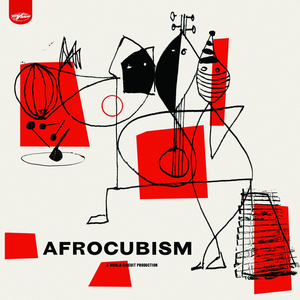Top Qs
Timeline
Chat
Perspective
AfroCubism
2010 studio album by AfroCubism From Wikipedia, the free encyclopedia
Remove ads
AfroCubism is a Grammy-nominated[1] album featuring musical collaborations between musicians from Mali and Cuba. It was released in 2010.
This article needs additional citations for verification. (February 2024) |
Remove ads
Concept and recording
The album was recorded for the World Circuit label by producer Nick Gold and engineer Jerry Boys at Sonoland Studios, Madrid, Spain, in 2010.[2] Mixing and mastering was done at Livingston Studios, London & FB Music and Media, Fareham.[citation needed]
The idea behind AfroCubism was the original concept for the Buena Vista Social Club album of 1997, which featured many of the same Cuban musicians. This concept however, was thwarted when the Cuban visas for the Malian musicians were delayed in the post,[3] and producer Nick Gold instead called on the services of Ry Cooder, whom he had recorded with Ali Farka Touré for the 1994 World Circuit release Talking Timbuktu.[4] The album captures the rhythmic and melodic patterns that are common to traditional West African and Afro-Cuban music.[5] The musicians involved in AfroCubism already had successful careers through participation in the Buena Vista Social Club or as solo artists.[6] The project has subsequently toured around the world as a successful live show.[7]
Remove ads
Critical reception
The album was praised by AllMusic reviewer James Allen, who described it as "a true musical meeting of minds between the two cultures [Cuban and Malian]".[8]
Track listing
- Mali Cuba
- Al vaivén de mi carreta
- Karamo
- Djelimady Rumba
- La culebra
- Jarabi
- Eliades tumbao 27
- Dakan
- Nima diyala
- A la luna yo me voy
- Para los pinares se va Montoro
- Benséma
- Guantanamera
Personnel
- Cuban musicians
- Eliades Ochoa – guitar, vocals
- José Ángel Martínez – double bass
- Jorge Maturell – congas, bongos, cowbell
- Onsel Odit – chorus, rhythm guitar
- Eglis Ochoa – maracas, güiro, chorus
- Malian musicians
- Toumani Diabaté – kora
- Bassekou Kouyate – ngoni
- Kassé Mady Diabaté – vocals
- Djelimady Tounkara – guitars
- Fode Lassana Diabaté – balafon
- Baba Sissoko – talking drum
See also
References
Wikiwand - on
Seamless Wikipedia browsing. On steroids.
Remove ads

